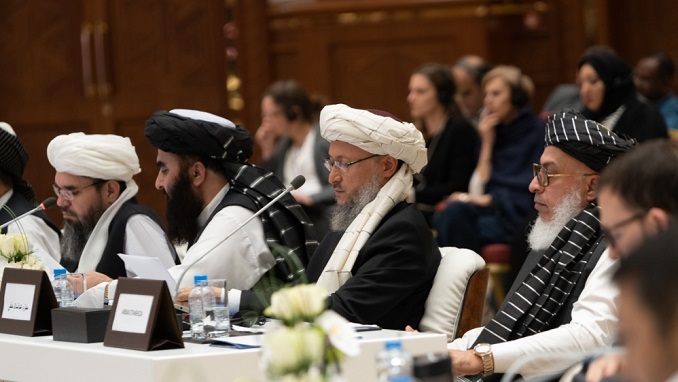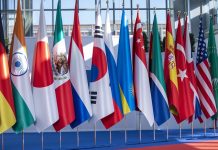The expanded Troika grouping, which includes Russia, the United States, China, and Pakistan, has convened eight times since 2019, with the most recent meeting taking place on April 30 in Doha. Following the April conference, a joint declaration called on the Taliban to “reduce the degree of violence” in the nation and “not to undertake a Spring offensive.”
Russia endorsed the inclusion of India and Iran in the extended ‘Troika’ talks on Wednesday, a Moscow-sponsored grouping aimed at boosting intra-Afghan peace talks.
The Russian Embassy’s spokesperson in New Delhi, Dmitry Solodov, stated that having Tehran and New Delhi as members of the inter-governmental organization will “enrich its potential even more.”
The Extended Troika currently consists of Russia, the United States, China, and Pakistan.
“With the deterioration of the situation in Afghanistan, the goal of forging a meaningful regional consensus to support intra-Afghan discussions is becoming even more critical,” said Solodov.
He stated that Russia’s “committed collaboration” with India as an active member in Afghan dialogue mechanisms was “natural, trustworthy, and forward-thinking.”
“Our extensive engagement in such established forms, such as the Shanghai Cooperation Organization (SCO), including the Regional Anti-Terrorist Structure, the SCO-Afghanistan Contact Group, and the Moscow format, is extremely effective and result-oriented,” said the Russian official.
Moscow’s suggestion to include Iran and India in the organization comes just days after Russian Foreign Minister Sergey Lavrov stated at a connectivity meeting in Tashkent that the “possibility of incorporating significant external players” in the enlarged Troika was being discussed.
“Only direct and inclusive inter-Afghan negotiations with the assistance of international partners can build a sustainable peace,” Lavrov stated on July 16 during the plenary session of the international conference titled “Central and South Asia. Regional Interconnectivity: Challenges and Opportunities.”
Subrahmanyam Jaishankar, India’s foreign minister, and Sayed Rasool Mohajer, Iran’s deputy foreign minister for economic diplomacy, both attended the conference in Uzbekistan’s capital.
On Wednesday, Jaishankar talked by phone with his Iranian counterpart, Mohammad Javad Zarif. During their meeting, the two foreign ministers addressed the “situation in Afghanistan” as well as “regional cooperation,” according to sources.
India has always supported a “Afghan-owned, Afghan-controlled, and Afghan-led peace process,” as well as the preservation of the country’s accomplishments during the last 20 years.
The departure of US-led forces from Afghanistan began on May 1st, emboldening the Taliban, whose militants now claim control of roughly 85 percent of the country’s territory. The group also claims control of Afghanistan’s border crossings with Pakistan (which is now in question as Afghan forces mounted an attack to recapture the crossing), Tajikistan, Turkmenistan, and Iran.












